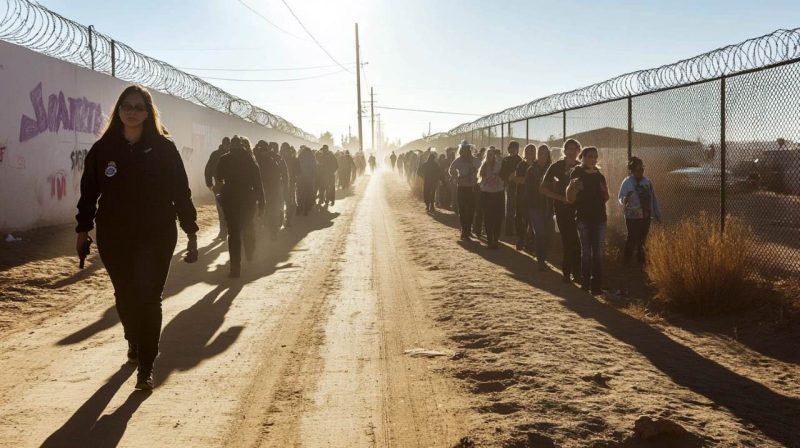
In a move that has reignited the national debate on immigration, President-elect Donald Trump has appointed Tom Homan as the new “border czar,” tasking him with orchestrating what is being described as the largest deportation initiative in American history.
Homan, who previously served as the acting director of U.S. Immigration and Customs Enforcement (ICE), has been vocal about his plans to implement a “shock and awe” strategy aimed at expelling millions of undocumented immigrants from the United States.
A Return to Hardline Immigration Policies
During his first term, Trump implemented stringent immigration measures, including the controversial family separation policy. With Homan at the helm, the incoming administration appears poised to not only revive but also expand these hardline approaches. Homan has indicated that no group will be exempt from enforcement actions, stating, “No one’s off the table.”
The Role of the Military in Deportation Efforts
One of the most contentious aspects of the proposed plan is the involvement of the U.S. military. Homan has clarified that while the military will not engage in direct enforcement activities, they will provide logistical support, such as transportation and infrastructure development, to bolster ICE operations. This approach aims to free up ICE agents to focus on enforcement tasks.
Legal and Ethical Concerns
The prospect of mass deportations has raised significant legal and ethical questions. Critics argue that such actions could lead to violations of due process and human rights, particularly if expedited removal procedures are employed without adequate legal representation for detainees. Additionally, the potential for family separations remains a deeply divisive issue. Homan has suggested that while family units may be detained together, the possibility of separating U.S.-born children from their undocumented parents has not been ruled out.
Impact on Sanctuary Cities
Sanctuary cities, which have policies limiting cooperation with federal immigration enforcement, are expected to be focal points in the upcoming crackdown. Homan has issued stern warnings to local officials in these jurisdictions, indicating that failure to comply with federal directives could result in legal consequences, including potential jail time for defiance.
Economic and Social Ramifications
The implementation of mass deportations is likely to have far-reaching economic and social impacts. Industries that rely heavily on immigrant labor, such as agriculture, construction, and hospitality, may face significant workforce shortages. Moreover, the deportation of millions could disrupt communities and separate families, leading to broader societal challenges.
Conclusion
As the Trump administration prepares to take office, the nation stands on the brink of a profound shift in immigration policy. The appointment of Tom Homan as border czar signals a commitment to aggressive enforcement measures that will undoubtedly shape the lives of millions and test the country’s legal and ethical boundaries. The coming months will be critical in determining how these policies are implemented and what their lasting effects will be on the fabric of American society.
